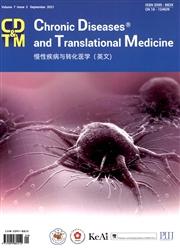Cognitive deficiency, parental relationship, and coping strategies are related with anxiety and depression among parents of children with epilepsy
Abstract
Background
The diagnosis of epilepsy in a child often and understandably causes psychological adjustment difficulties in the parents. To help parents of children with epilepsy cope with stress, it is important to understand how parents cope with the sickness of their child. The objective of this study was to assess factors related to the state of anxiety and depression among parents of children with epilepsy.
Methods
The present study was a cross-sectional study, and the data were collected through an anonymous, Internet-based survey platform between October 2018 and October 2019 from 250 participants aged 22–65 years. Participants were invited to fill questionnaires include socioeconomic questionnaire, anxiety, depression, and coping strategies scale.
Result
Among the parents of children with epilepsy, 48.8% (122/250) had depressive symptoms (Patient Health Questionnaire-9 [PHQ-9] score >4) and 46.4% (116/250) had anxiety symptoms (7-item Generalized Anxiety Disorder [GAD-7] score >5). Depression among parents of children with epilepsy was significantly associated with comorbidity (odds ratio [OR] = 0.392, 95% CI = 0.182–0.846), a poor parental relationship (OR = 0.283, 95% CI = 0.130–0.614), positive coping (OR = 0.947, 95% CI = 0.903–0.992), and negative coping (OR = 1.287, 95% CI = 1.179–1.405). Anxiety among parents of children with epilepsy was significantly associated with a poor parental relationship (OR = 0.416, 95% CI = 0.207–0.835) and negative coping (OR = 1.155, 95% CI = 1.087–1.228).
Conclusions
The present study indicates the importance of couple support and providing effective coping to make parents of children with epilepsy more resilient in the presence of negative life events, especially for parents of children with comorbidity with cognitive deficiency.

 求助内容:
求助内容: 应助结果提醒方式:
应助结果提醒方式:


